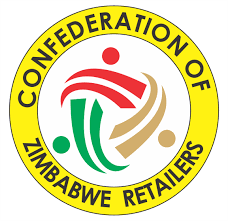Exchange Rate Woes: Retail sector confronts unprecedented challenges
HARARE – The Confederation of Zimbabwe Retailers (CZR) has sounded the alarm over the mounting difficulties plaguing the retail and wholesale sector, linking recent price surges to a volatile exchange rate and stringent regulatory measures. As businesses navigate these turbulent waters, the CZR is urgently calling for reforms to foster a more favorable operational environment.
The root cause of the current price increases lies in the disparity between income and operational expenses. Retailers and wholesalers primarily earn in Zimbabwean dollars (ZiG) while sourcing goods that are predominantly priced in USD. This mismatch complicates pricing strategies, as suppliers often demand payments in an 80:20 USD to ZiG ratio, compelling retailers to either absorb inflated costs or pass them on to consumers.
The CZR points out that the fixed exchange rate imposed by the Exchange Control Act exacerbates the situation. Retailers are legally bound to price goods according to this fixed rate, which fails to reflect the actual costs incurred when sourcing goods in USD. This regulatory burden has left many businesses in a precarious position, with the Financial Intelligence Unit (FIU) ramping up crackdowns on perceived violations of the Exchange Control Act.
“Retailers are not engaging in profiteering; they are merely striving to survive under extremely challenging conditions,” a CZR representative stated. Ongoing economic pressures, including foreign currency shortages and inflation, have forced businesses to frequently adjust prices, further straining consumer affordability.
Economist Eddie Cross has criticized the Reserve Bank of Zimbabwe for underestimating the severity of the current economic crisis. In a recent op-ed, Central Bank Governor John Mushayavanhu said measures being taken by Government to strengthen demand for ZiG through the payment of taxes at the QPDs (quarterly payment dates) and interventions by the Reserve Bank to smoothen foreign currency supply-demand mismatches should result in exchange rate stability going forward. ZIMRA has today given guidance to QPDs payments.
Mushayavanhu said in April that ZiG would not fail under his watch and that a lot of the issues that confronted the previous governor, such as Treasury overdraft would not happen but… (file pic)
But Cross contends that the issues of inflation in both USD and ZiG, along with the rapid devaluation of the local currency, remain unaddressed. He argues for a market-determined exchange rate, established through willing buyer-seller engagement, rather than a fixed rate imposed by the central bank.
“The current trajectory will only lead to the depreciation of the local currency until it becomes untenable in the marketplace. If this continues, the ZiG will face a fate similar to its predecessors,” Cross warned.
The formal sector is in a precarious position, with its future hanging in the balance.
In light of these challenges, the CZR has proposed several measures aimed at stabilizing the sector. Key recommendations include liberalizing the exchange rate to facilitate market-related pricing, removing fuel taxes or providing fuel in ZiG to ease operational costs, and opening borders for the importation of essential goods to enhance competition and curb monopolistic practices among manufacturers.
Furthermore, the CZR advocates for dollar-for-dollar transactions for goods procured in USD, allowing retailers to sell these goods exclusively in USD to eliminate currency conversion complications. The organization also stresses the importance of consistent regulation across both formal and informal sectors to ensure fair competition.
“Without meaningful intervention, we risk further closures and economic stagnation,” the CZR cautioned. The organization remains dedicated to engaging in constructive dialogue with stakeholders, including government and regulatory bodies, to tackle the pressing challenges confronting the retail and wholesale sector.
ZNCC Chief Executive Christopher Mugaga echoed these sentiments, stating that the exchange rate poses a significant headache for all sectors, including manufacturing, retail, and transport. He emphasized the need for a critical evaluation of the central bank’s policies and their effectiveness in managing the exchange rate, advocating for a more market-driven approach.
“It is crucial for the central bank to reassess its policies and determine whether they are effective. The current exchange rate determination mechanism is no longer viable, necessitating a comprehensive review of the entire foreign exchange management system to ensure that market voices are prioritized,” Mugaga concluded.-finx












